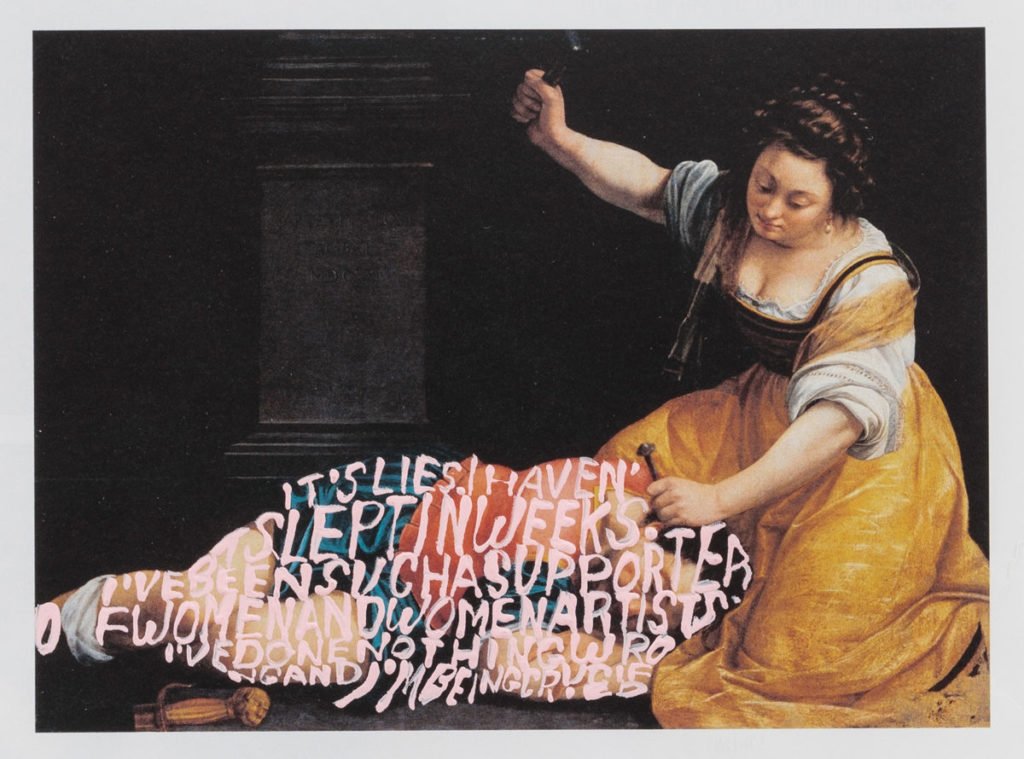Betty Tompkins
Photograph source
From Ocula
In small- and large-scale paintings known for their hyper-realistic rendering and explicit scenes, American artist Betty Tompkins presents unabashed portrayals of female sexuality. Text and language also feature largely in her oeuvre, seeking to confront the history of misogyny in the art world and the ongoing objectification of women.
Betty Tompkins first began to consider sex as the subject of her paintings in the late 1960s while going through her then-husband's collection of pornographic images at a time when it was illegal to own them in the United States. After cropping images that she found compelling, the artist started recreating them. Between 1969 and 1974, a series of eight 'Fuck Paintings' were created using an airbrush, building upon layers of black and white acrylic paint to depict close-up shots of penetration. Monochromatic and slightly out of focus, Tompkin's paintings are evocative of formal studies of abstraction.
Although Tompkins was able to exhibit her early paintings in the 1970s, she would remain in relative obscurity for decades. In the 1970s in New York, galleries refused to show Betty Tompkins' artworks, while many second-wave feminists denounced the works for what they perceived as being exploitative of women. The 'Fuck Paintings' also suffered from censorship; in 1973, two were seized by the French Customs Office on their way to France for an exhibition. It took a year before the work was returned to the artist.
Departing from her 'Fuck Paintings', Tompkins later began to work closely with text. In the late 1970s and early 1980s, she drew phrases from legal United States documents and painted their enlarged reproductions in acrylic or pencil on a grid composed of the word 'LAW'. The Bill of Rights (as depicted in Bill of Rights, 1978) and the Constitution (as depicted in We the People..., 1983) are frequent sources. Tompkins was inspired to create these works by a research study that suggested that many American high school students were unfamiliar with such fundamental articles.
Tompkins garnered wider attention in 2002 when a solo exhibition at Mitchell Algus Gallery in New York brought her 'Fuck Paintings' together for the first time in public. Fuck Painting #1 (1969) was purchased by the Centre Pompidou in Paris, and the series was later shown at the Lyon Contemporary Art Biennale in 2003. During this time Tompkin's oeuvre was reconsidered in the context of feminist art, which led to her inclusion in the group exhibition Black Sheep Feminism: The Art of Sexual Politics at Dallas Contemporary in 2016.
Since the early 2000s, Tompkins has revisited the subject matter of sex, highlighting it in terms of violence against women. In 2002, she initiated 'Women Words', which asked people to send in emails showcasing language they heard in relation to women. The artist then made 1,000 paintings using these transcriptions, ranging from loving to demeaning, and another 1,000 in 2013 with further stories and anecdotes from women. A related series, 'Apologia' (2018), quoted parts of apologia or denials issued by media figures accused of sexual harassment in recent years, such as R. Kelly or Chuck Close.
In the 'Women Words' and 'Apologia' paintings, the background images are reproductions of well-known artworks, often found in art history textbooks. 'Women Words' feature masterpieces by male artists such as Titian's Venus and Adonis (1550s) (reproduced in Women Words [Titian #5], 2018) and Edouard Manet's The Surprised Nymph (1861) (reproduced in Women Words [Manet #2], 2018). In these works, female figures are covered in pink text, bringing attention to the way the female body has been objectified under the male gaze in Western art history. The reverse takes place in the 'Apologia', which borrow mostly female artists' works, such as Gentileschi's Lot and his Daughters (1635–1638) (Apologia [Artemisia Gentileschi #2], 2018) and Suzanne Valadon's Adam and Eve (1901) (Apologia [Suzanne Valadon #1], 2018), and blocks out male figures.
'Women Words' and 'Apologia' were exhibited together at P.P.O.W, New York, in 2018, while the 'Women Words' appeared in Tompkins' solo presentation Women Words, Phrases, and Stories at The FLAG Art Foundation, New York, in 2016.
Tompkins lives and works in New York.
Betty Tompkins, Apologia (Artemisia Gentileschi #3) (2018).


